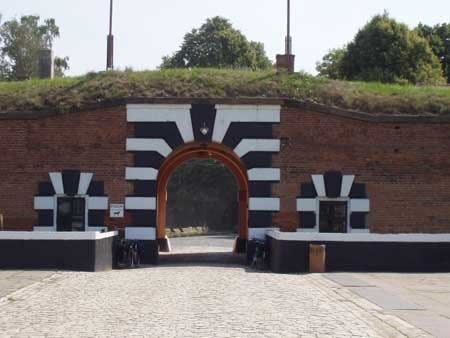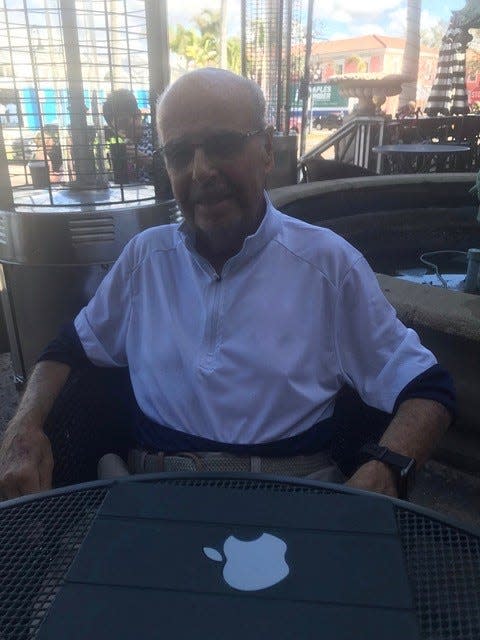Released after three years in Terezin concentration camp
Editor's note: Victory in Europe Day (V-E Day) marks the acceptance by the Allies of World War II of Germany's surrender, the end of World War II in Europe.
Remembering V-E Day, May 8, 1945: On this day, I was 12 years old, standing outside the now open gates of the concentration camp Terezin, not far from Prague, the capital of what now is Czechia. I was free for the first time in three years. Huddling near the gate were the Nazi guards who had kept me imprisoned, now themselves prisoners of war.

Some of my elders stomped on the cowering Nazis, kicked them, slapped their faces, spat on them, their way of finally getting even. I thought: "How can one hate when hate had brought so much suffering to so many of us? How can I keep my sanity adopting the methods of the insane?" At 90, the questions haven't liberated me, and the answers continue eluding me.

Having survived three traumatic years, one of around 100 children of the 15,000 sent here, I was now free to restart my life. But my mindset was similar to that of a convict jailed as a young man, who has won his legal release nearing old age. He is facing a world that has changed, without having experienced those changes behind bars.
There was I at 12 years old, not knowing or remembering any other way of life, having had no reference to personal suffering, no parental discipline, no idea of privacy. No one had ever explained what is a concentration camp, why I resided in one, why I had been separated from my parents and they had been separated from each other.
Suddenly, I was told that I have been liberated, without understanding the term, from what I was liberated, and what it really meant to my life going forward. Coping with freedom became a drawn out process that, in retrospect, has lasted a lifetime. No longer a child, of course, but forever a survivor, I have never taken advantage of that part of my past, never made a living off it, never gave testimony of my experience for posterity, having instead tried, but failed, to live an adult life. Even most of my coworkers always called me Georgie.
Most recently, I was thinking of the plight of millions of Syrian child refugees, living near starvation in overcrowded camps, much like so many other children who have been forced by war to flee their homes. It is very likely that growing up in these camps, they will not know another way of life.
The war against Ukraine is the latest example of children victimized by events they can't understand and don't have the experience to know how to cope with them.
It has now been 78 years since Liberation Day. Today I realize it was a total puzzle to me at that time. Solving that puzzle has lasted a lifetime.
I was an introvert with no social awareness or skills. Didn't know how to make friends. How to behave in class. How to study. Didn't know how to negotiate and apply for a job. How to choose and apply for college. How to date. There was no one to guide me and I didn't know how to ask for help. I was far removed from being liberated. And it has lasted into adulthood.
Being liberated meant returning to school. I recall an act of defiance, openly challenging my grammar school math teacher, forcing him to discipline me in front of the class. Instead of showing contrition, I stared him down. He was an understanding man and in the end, motivated me to become his top student.
Being liberated meant having a parent. My father died in Dachau, a concentration camp near Munich, Germany, and Mom became a single parent trying to deal with a difficult son. I was desperate for a male mentor. It became a behavior problem that frustrated Mom to the point of threatening to put me into reform school.
One of the few surviving relatives was an uncle by marriage, who tried being my mentor. On my next birthday, he gave me a single-speed bike, teaching me how to ride it. it became a means of escaping, running away from home, experiencing freedom for the first time, riding it almost daily all over Prague.
The Holocaust is history today, often disputed by deniers, misunderstood by generations, being of about as much interest as knowing about the Spanish Inquisition. Rather than being a conversational subject, it has become major fodder for researchers.
Last year, I met an Israeli in his 30s, Barack Levi, who came to repair our garage door. We started a conversation about why he came to the United States very recently. I mentioned that I spent three years in Terezin. Obviously puzzled, Mr. Levi asked what that was. So much for his remembrance.
George A. Baum is a retired Chicago TV journalist and freelance writer and has self-published a memoir, "The Human Spirit Under Siege," on Amazon books as paperback and Kindle. He is a Naples resident.
This article originally appeared on Fort Myers News-Press: Released after three years in Terezin concentration camp
